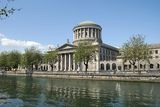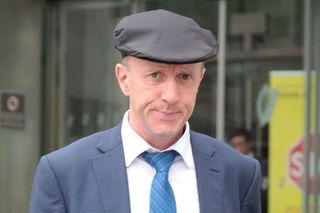Primary schools say they will need voluntary contributions despite €36m energy subsidy
Education Minister Norma Foley
Primary schools say they will still need voluntary contributions from parents this year, despite the multi-million energy subsidy awarded in the Budget, it was warned today.
But parents themselves are hard-pressed as they struggle to cope with household costs in the face of rising inflation.
The €90m one-off subsidy, announced in this week’s Budget, will be split between the primary and post-primary sectors and is intended to help schools meet their soaring bills for heat and light and other rising costs.
The Catholic Primary School Management Association (CPSMA) estimates that the primary sector will receive 35pc-40pc of the €90m, which translates as €32m-€36m, shared between about 3,200 primary schools.
The funding will be paid in addition to existing capitation grants for day-to-day living costs and money for anti-Covid measures.
The CPSMA said the payment meant that “for the first time in years schools were within shouting distance of the funds needed to actually run schools”.
While CPSMA general secretary Seamus Mulconry welcomed the funding, he added: “I regret to say that we will still need parents support this year in form of voluntary contributions” .
Mr Mulconry said if the current payment “were to be annualised, and it should be, we would be a long way to a properly funded primary school system and being able to get rid of voluntary contributions for once and for all”
Some years ago, a CPSMA survey found that primary schools relied on parents for about €46m a year in voluntary contributions and fund-raising to meet running costs.
The energy subsidy will be worth about 40pc of existing capitation grants and Mr Mulconry said while it was less than the 50pc increase in capitation they sought, it was “very welcome at a time when school budgets are being battered by a perfect storm of rapidly rising energy costs and price increases in paper and other teaching materials”.
Earlier today, Education Minister Norma Foley described the amount of funding going to schools this year was “substantial”.
The subsidy is intended for “free education” schools and, when asked about whether fee-paying schools could apply, Ms Foley pointed to the “significant” State funding for private schools in terms of paying for staff, but said there was “always a willingness if schools wished to make an application”. Some fee-paying schools, particularly in the Church of Ireland sector, are not well off.
Talking about the Budget decision to fund free schoolbooks for all primary pupils from next September, Ms Foley said schools could buy their books from local retailers – as opposed to through a centralised purchasing system - if that’s what they wanted to do.
The minister also said that it was her “absolute determination” to see a follow on the free books initiative for post-primary pupils.
Ms Foley confirmed that additional funding has also been approved to allow more pupils to travel on school buses.
There was unprecedented demand this year after charges were waived as a cost-of-living measure, and thousands of pupils lost their seat. So far, more than 125,000 of about 130,000 applicants have received a ticket, well ahead of last year.
Of the 125,000 tickets issued 88,400 are to pupils who meet the eligibility criteria while the remainder are “concessionary” passengers who get a seat if there is spare capacity on a bus.
Any eligible pupils who did not get a seat are the first priority, and there is also a focus on trying to accommodate concessionary passengers who had a ticket last year, subject to availability of buses and drivers, which varies between areas.
While there is no commitment regarding pupils who would be concessionary passengers but who never had a seat, as additional capacity is put in place, there is expected to be further scope to accommodate at least some of these pupils.
Ms Foley said that a “very flexible approach” would be taken by Bus Éireann which operates the scheme.
Junior minister for special education Josepha Madigan said an additional €13m for the National Council for Special Education (NCSE) would “transform the organisation” through the provision of 121 frontline and administrative staff to support families. She said they didn’t want to be in a situation where parents were “scrambling for places every year”.
There will be about 2,000 additional class spaces for children with special needs next year, while the National Educational Psychological Service (NEPS) will receive funding for an additional 54 psychologists to provide a service to special schools and special classes.
Join the Irish Independent WhatsApp channel
Stay up to date with all the latest news














